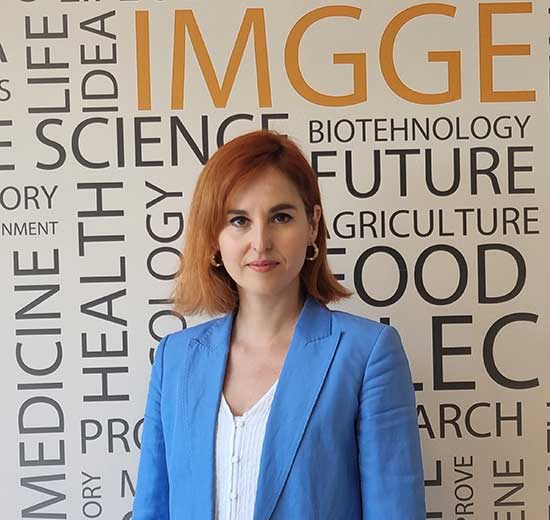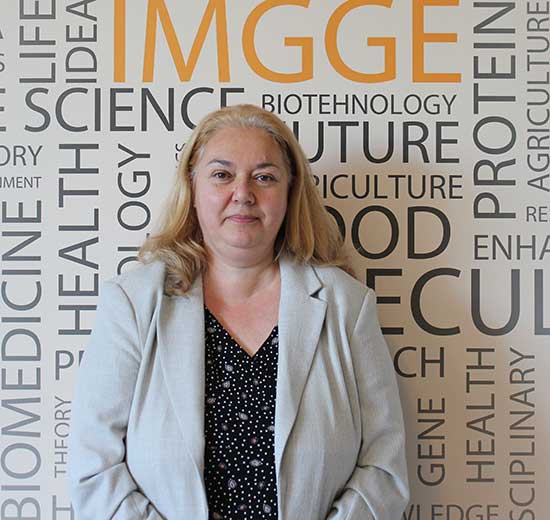Department
Department of Human Molecular Genetics and Genomics

HEAD OF THE DEPARTMENT
Maja Stojiljković, Full Research Professor
maja.stojiljkovic@imgge.bg.ac.rs
Tel: +381 65 3976445
Vojvode Stepe 444a
11042 Belgrade 152
Serbia
Department of Microbiology and Plant Biology

HEAD OF THE DEPARTMENT
Nataša Golić, Full Research Professor
natasa.golic@imgge.bg.ac.rs
Tel: +381 65 3976065
Vojvode Stepe 444a
11042 Belgrade 152
Serbia
The Department of Human Molecular Genetics and Genomics focuses on elucidating the genetic basis of human diseases, with particular emphasis on rare monogenic disorders, as well as neurological, cardiovascular, pulmonary, hematological, autoimmune diseases and malignancies. The main goal is to understand the molecular mechanisms underlying these conditions and to translate this knowledge into the development of personalized medicine.
Research activities include the identification of causal, modifier and pharmacogenetic variants using Next-Generation Sequencing of the whole exome or genome, as well as transcriptomic analyses. Data interpretation is carried out using advanced bioinformatics and biostatistical tools, with special attention to genotype–phenotype correlations to predict disease progression and therapy response.
A significant part of the department’s work involves disease modeling and the investigation of cellular and molecular pathophysiological mechanisms. This enables the development and testing of innovative therapeutic strategies, including small chemical molecules, nucleic acids and cell-based therapies using stem cells.
The Department of Microbiology and Plant Biology studies interactions between microorganisms, as well as their relationships with human, animal and plant hosts. Research is focused on understanding antimicrobial resistance, pathogen virulence, chronic infections and biofilm formation, with the aim of developing new antimicrobial, antifungal and biofilm-disrupting agents.
The department also investigates the role of commensal bacteria in the development or prevention of autoimmune, neurodegenerative and neurodevelopmental disorders, as well as their potential to promote plant growth and provide biocontrol of phytopathogens. In parallel, researchers develop green biotechnological processes for the conversion of waste into bioactive molecules, biodegradation of herbicides and environmental pollutants, and production of food and pharmaceuticals.
Additionally, the department evaluates the ecotoxicity and biodegradability of various materials, studies the role of microorganisms in air, water and soil pollution, and explores plant stress tolerance mechanisms. In doing so, it bridges fundamental research with practical solutions for human, animal and plant health, as well as environmental sustainability.


